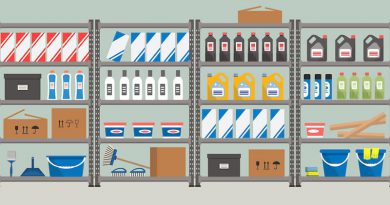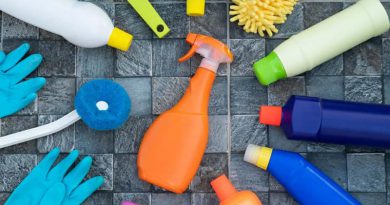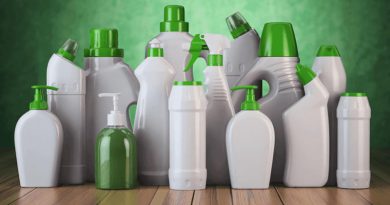Which cleaning materials can cause allergies?
Keeping our homes clean and free from allergens is essential for maintaining a healthy living environment. However, it’s important to be aware that certain cleaning materials can potentially trigger allergies in some individuals. In this article, we will explore the topic of allergens in cleaning materials, providing valuable insights into potential triggers and how to minimize the risks.
Understanding Allergies and Sensitivities
Allergies are the result of the body’s immune system overreacting to substances it perceives as harmful. Common allergens include pollen, dust mites, pet dander, and certain chemicals. When exposed to these allergens, individuals with sensitivities may experience symptoms such as sneezing, itching, watery eyes, or respiratory difficulties.
Allergenic Cleaning Materials
- Fragrances: Many cleaning products, such as air fresheners, laundry detergents, and surface cleaners, contain fragrances that can trigger allergic reactions in some people. These fragrances may contain volatile organic compounds (VOCs) that can irritate the respiratory system.
- Harsh Chemicals: Some cleaning materials, particularly those used for heavy-duty tasks like oven or bathroom cleaning, contain strong chemicals such as bleach, ammonia, or formaldehyde. These substances can cause skin irritation, respiratory distress, or allergic reactions in sensitive individuals.
- Enzyme-Based Cleaners: Enzyme-based cleaners, commonly used for removing stains or deodorizing, may contain protease enzymes derived from plants, animals, or bacteria. Although generally considered safe, these enzymes can cause allergies or sensitivities in some individuals.
- Aerosol Sprays: Aerosol-based cleaning products, including furniture polish, glass cleaners, or carpet fresheners, often contain propellants and solvents that can be irritating to the respiratory system. These products can trigger symptoms in individuals with pre-existing respiratory conditions or sensitivities.
- Dusting Agents: Dusting agents, such as furniture polishes or anti-static sprays, can contain ingredients like silicone, mineral oils, or waxes. While these substances can enhance shine and dust resistance, they may also cause skin irritation or respiratory distress in susceptible individuals.
Minimizing Allergy Risks
To minimize the risk of allergies caused by cleaning materials, consider the following tips:
- Choose Unscented or Fragrance-Free Products: Opt for cleaning materials labeled as unscented or fragrance-free, as they are less likely to contain allergenic fragrances.
- Read Product Labels Carefully: Look for products labeled as hypoallergenic or designed for individuals with allergies. Read the ingredient list and avoid products containing known allergens or harsh chemicals.
- Ventilate the Area: When using cleaning materials, ensure proper ventilation by opening windows or using fans to reduce exposure to airborne particles.
- Wear Protective Gear: If you are sensitive to certain cleaning materials, consider wearing gloves, a mask, or goggles to minimize direct contact or inhalation of potentially allergenic substances.
- Test in a Small Area: Before using a new cleaning product, test it in a small, inconspicuous area to check for any adverse reactions or sensitivities.
- Seek Professional Advice: If you have known allergies or sensitivities, consult with an allergist or healthcare professional for personalized recommendations and guidance on choosing suitable cleaning materials.
In summary, certain cleaning materials can potentially trigger allergies or sensitivities in susceptible individuals. Understanding the common allergens present in cleaning products and taking proactive measures to minimize exposure can help create a safer and more comfortable cleaning environment. By making informed choices and following best practices, you can maintain a clean and allergen-free home while minimizing the risk of triggering allergies.
Remember, everyone’s sensitivity to allergens can vary, so it’s essential to pay attention to your body’s reactions and take necessary precautions. If you experience persistent or severe allergic symptoms, it’s recommended to consult with a healthcare professional or allergist for a proper diagnosis and personalized advice.
By staying informed about the potential allergenic properties of cleaning materials and following the tips provided, you can create a healthier and more comfortable living space for yourself and your family. Regular cleaning and maintenance are important, but it’s equally crucial to prioritize your well-being and choose cleaning materials that suit your individual needs.
Keeping a clean home shouldn’t come at the cost of triggering allergies. With awareness, caution, and informed choices, you can maintain a clean and allergen-free environment, promoting better health and well-being for everyone in your household.
Remember to always prioritize safety, read product labels, and seek professional advice if needed. By taking these simple steps, you can make a positive impact on your indoor air quality and enjoy a cleaner, healthier living space.




